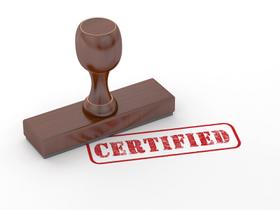What does a teacher earn? "Not nearly enough" is the almost universal answer. Scan a site like Salary.com and check out competing jobs. You will see that the problem with teaching is that we demand highly qualified, well-credentialed individuals with experience to take jobs for which we literally pay them less than a dog catcher.
The cynics will say that teachers are well-compensated for what they do. After all, they get all those holidays. And they only work for ten months anyway. The reality is that teachers invest inordinate amounts of time preparing lesson plans, learning new techniques, keeping certifications current and so on. And then there is the cost of that bachelor's degree, the masters and doctorate. Let's face it, the ROI is job satisfaction, not financial reward.
This video discuss the effect teacher compensation has on teacher quality.
Private school teachers are more fortunate than most public school teachers. Why? Because they get to teach their subject to small classes. Real learning takes place in most private school classrooms as a result of low student to teacher ratios. Discipline is rarely a problem. What does this have to do with teacher compensation? Combine job satisfaction with a reasonable compensation package and you will have a happy teacher.
Private school teachers enjoy many perks which are not generally found in the public sector. These include free or reduced tuition for faculty children, meals and housing at boarding schools.
Which states pay teachers the most?
App.com reported that Alaska, New York, Connecticut, California, and New Jersey topped the list. These states pay the teachers the most. Where does your state fall? gives average teacher salaries and the number of teachers in each state. What strikes me is those top five states all have a high cost of living. So, while $73,000 may seem a decent salary if you live in Iowa or Montana, it is not much to live on in those states where housing, transportation, and other daily living expenses are very high. Private school teachers, as we have noted above, will make 5 or 10% less than their colleagues in public school.
In which states does teacher compensation go the furthest?
Michael Winters has some answers to that question in his article GRAPH: Where Do US Teacher Salaries Really Go the Furthest? While his data is from 2014-15, factoring in the 3-4% annual cost of living increase will get you close to what current figures are. Once again housing and transportation are the major expenses confronting any public servant such as a teacher or first-responder.
How much do teachers earn in retirement?
Teacher Pensions offers some answers to this question. Sadly, there are warning signs in many states which indicate that teacher pension funds are under-funded. Another little known fact about public teacher pensions is that fifteen states do not provide social security for their teachers. In those states, the pensions are slightly larger to offset the social security component. Private school teachers generally provide 401k plans to help fund teacher retirement.
All teachers deserve to be compensated adequately. You and I can make that happen by making our opinion known to the school authorities.
Questions? Contact us on Facebook. @privateschoolreview





















